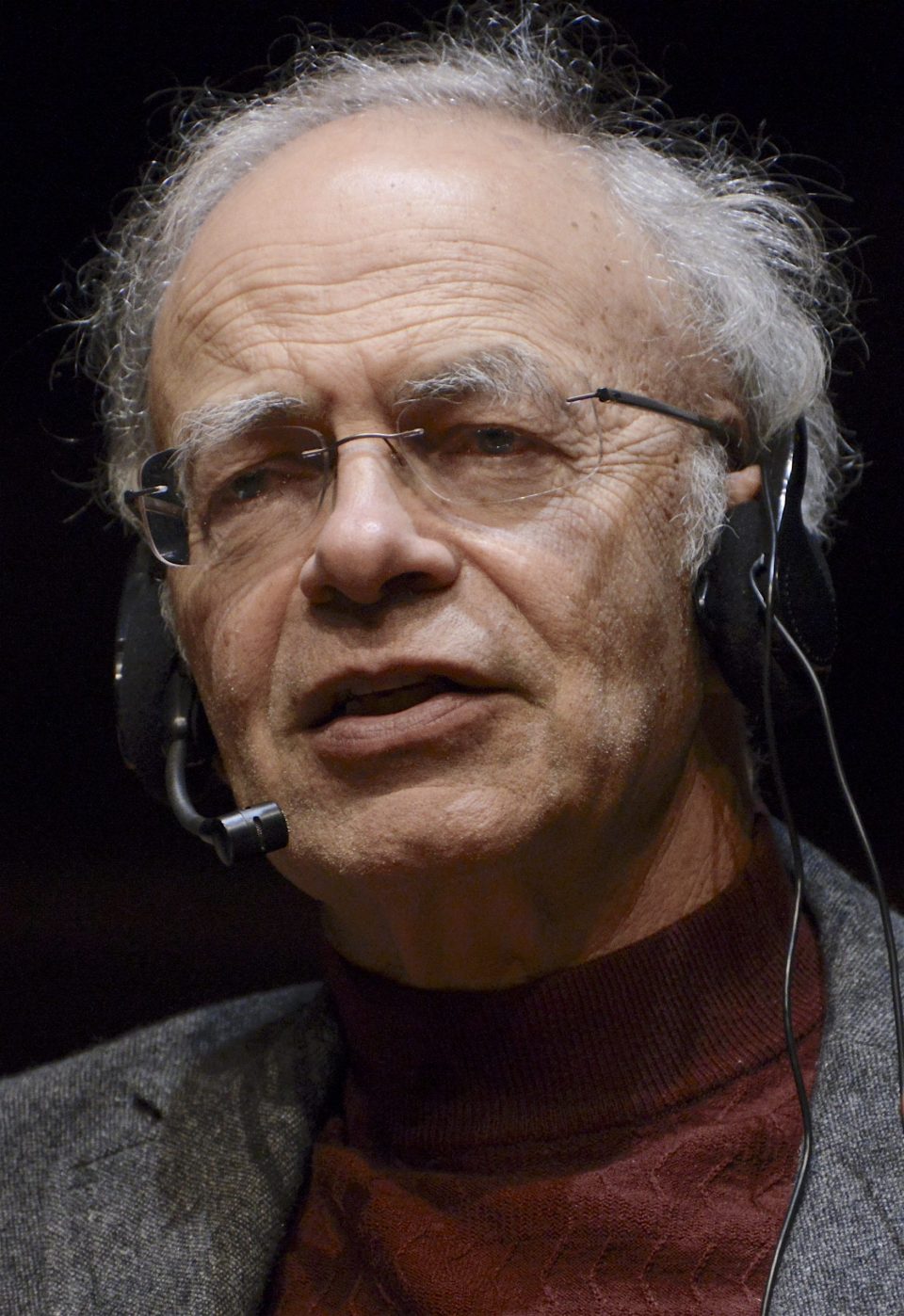Hi folks, how ya doing? This week we are meeting at the Kittiwake from 8.00pm, it would be great to see you.
We continue with our series on ‘Influencers and Prophets’. This week we consider the work of Peter Singer… Who I hear you cry! Peter Singer is an Australian moral philosopher who specialises in applied ethics. This is the study of the moral implications of issues in the world, for example the morals around euthanasia.
Singer wrote a book in 1975 entitled Animal Liberation, here he argues for veganism. He is often cited as one of the most formative influences in this field. His main argument in the book is “the greatest good of the greatest number”. This he suggests is the only measure of good ethical behaviour. Singer believes that there is no reason not to apply this principle to other animals, arguing that the boundary between human and “animal” is completely arbitrary. There are far more differences between a great ape and an oyster, for example, than between a human and a great ape, and yet the former two are lumped together as “animals”, whereas we are considered “human” in a way that supposedly differentiates us from all other “animals.” He has also defended the controversial behaviour of some animal welfare groups for using extreme means.
He also wrote an article around how we should donate to the global poor. He is also known for his Green politics and stood unsuccessfully for the Greens in Australia to become its Senate in 1996.
In relation to the poor he argues that people should not only try to reduce suffering, but reduce it in the most effective manner possible. He has also written about the moral imperative to eliminate the suffering of ‘non human animals’ within the meat industry. He is a supporter of giving to charities that have an aim for ending global poverty. In a 1972 essay he suggests that wealthy nations are morally obligated to give some of their disposable income to charities that help the poor. He does this by using the drowning child analogy – most people would rescue a drowning child from a pond, even if it meant that their expensive clothes were ruined, so we clearly value a human life more than we value our possessions. And so we should use some of the money that we spend on possessions to donate to charity.
So some questions…
What’s the weirdest thing you’ve ever eaten?
What are your thoughts on veganism?
What do you think about the meat industry?
Do you agree with the idea of humans and some animals being of equal value?
Do you think the rich nations are morally obligated to help the poorest in the world?
What can the first world do better in order to help the third world?
Are you willing to make a detrimental change in your lifestyle to benefit someone else? Are you already doing this? What might that change be?
Peace, Rob

Rob Wylie is the founder of BeachcomberFX and guides its leadership team. He has worked in the North East for over 20 years and has vast experience from various roles he has held. He has a passion for Fresh Expressions of Church and Pioneer Ministry as well as beer, beaches and Miniature Schnauzers.
